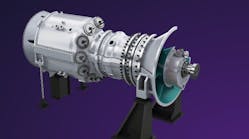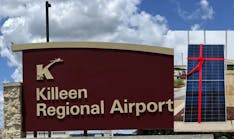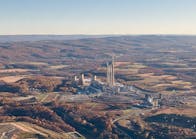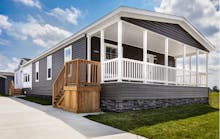A higher percentage of Americans favor nuclear energy as a key means of generating electricity than they have in more than a decade, according to the results of the latest nationwide poll on this issue by Gallup.
Even so, the issue is a hot button one for all customers concerned about the energy transition.
The latest Gallup query on nuclear energy found 55 percent of Americans strongly or somewhat favor the inclusion of nuclear power generation in the U.S. electricity mix. This result was the highest portion in favor of reactor power since 2012, when 57 percent answered in the affirmative.
Of course, some 62 percent told Gallup they were strongly or somewhat in favor of nuclear energy for electricity only two years earlier than that, in 2010, and then the percentage dropped as low as 44 in 2016’s polling. So it seems the number often vacillates depending on the status of high or low oil and gas prices.
Gasoline prices were relatively low in 2016, coming within years of a bust in the drilling industry. Thus, it appears, most Americans weren’t all that ready for the reactors at that time of questioning.
High oil and gas prices arose in the past year, and seem to have impacted respondents’ sentiments more in the positive for nuclear.
As for the most recent Gallup poll on nuclear energy asked as part of an Environment survey done annually, 44 percent of respondents are strongly or somewhat not in favor. Although nuclear power offers carbon-free, baseload and high capacity-factor power, it also includes risks of radioactivity, nuclear waste and the high expense of building new plants.
Many political leaders across both aisles have expressed support for renewing nuclear energy capacity in the U.S., but voter attitudes for or against still run mostly along party lines.
“While majorities of Republicans have consistently backed the use of nuclear energy since 2001, Democrats have been far less supportive of it,” reads the summary of the Gallup poll by Megan Brenan, research consultant. “Currently, 62 percent of Republicans, 46 percent of Democrats and 56 percent of Independents favor the use of nuclear energy to provide electricity in the U.S.”
Some Democrats are rallying to the nuclear cause due to the Biden Administration’s support for shoring up the otherwise struggling industry. Only one new nuclear power plant has been built in the U.S. over the past decade, and the latest construction, the Vogtle 3 and 4 expansion in Georgia, has cost more than $30 billion and led to multiple delays including the 2017 bankruptcy of original contractor Westinghouse.
Numerous nuclear associations in the G-7 group of developed nations have advocated for including a greater role for nuclear in the energy transition to Net Zero carbon emissions. In the U.S, numerous companies such as NuScale Power and GE-Hitachi Nuclear are vying for approvals to build smaller, modular reactors.
The nation’s 94 nuclear reactor units currently generate about 20 percent of the U.S. utility-scale electricity mix, a higher portion than both wind and solar combined. Nuclear accounts for more than half of all utility-scale carbon-free electric generation in the U.S., according to EIA reports.





